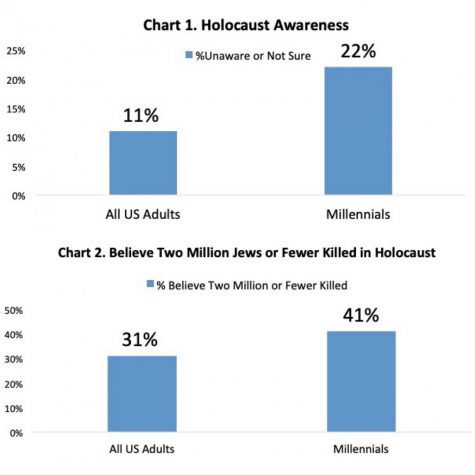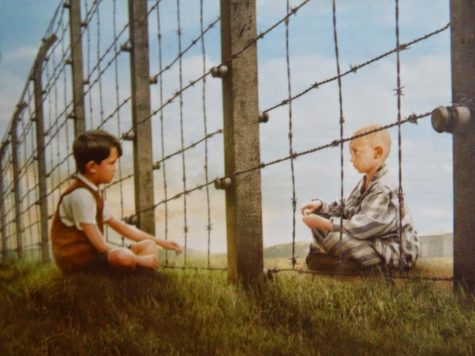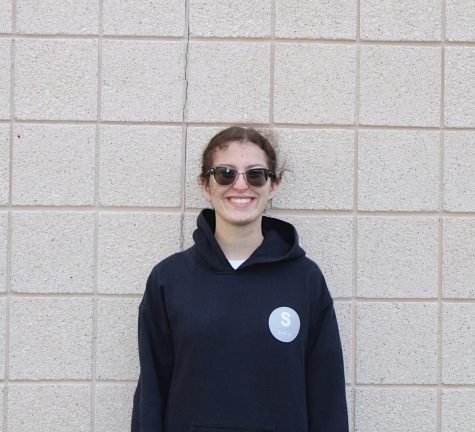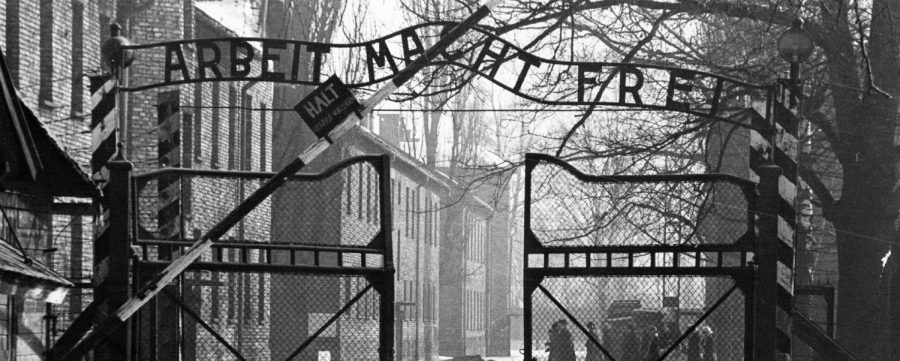Why Everyone Should Care About Holocaust Denial
During this time in our country, when we are collectively coming to terms with the effects of white supremacy, we must address hate from all angles: anti-Black racism, anti-Asian racism, anti-Indigenous racism, and antisemitism.
The ubiquity of Holocaust denial is a reality that cuts like a knife and forces me to educate others who would prefer to forget the crimes committed against my community. Holocaust denial continues to plague society today, but it is disguised as soft-core denial.
Soft-core Holocaust denial, unlike hardcore Holocaust denial, does not deny that the Holocaust happened but instead tries to conceal the worst of the Holocaust. Like hardcore Holocaust denial, it seeks to contort Jews into the role of the oppressors and non-Jews into the role of the victims.
In mid-October, Twitter and Facebook finally chose to ban Holocaust denial. Non-Jews must do more in their daily life than just acknowledging that the Holocaust happened. Considering that Jews make up only 0.2% of the world and non-Jews comprise the other 99.8%, Jews cannot be the only people responsible for combatting Holocaust denial.
One popular form of Holocaust denial is the notion that non-Jews fought against the atrocities committed against Jews. I once sat through a class in which the teacher wanted us to know that non-Jews helped Jews—that many were appalled by Nazism; people weaponize stories like these to silence Jews about their experiences of real pain at the hands of their non-Jewish neighbors.

This form of Holocaust denial leads to the notion that Jews are not properly grateful to the numerous righteous non-Jews. Poland has criminalized any mention of Polish complicity in the Holocaust, a country that housed the largest concentration death camp, Auschwitz-Birkenau, and the 1946 Kielce pogrom. Non-Jews must grapple with their history of complicity and educate fellow non-Jews, who spout this a-historical nonsense.
Another form of soft-core Holocaust denial is the belief that the Holocaust was “not that bad.” Similar to the lie of the “happy slave,” some creators have presented the Holocaust as a place where Jews enjoyed themselves while working and starving to the death.
For example, in Kate Breslin’s For Such A Time, the Jewish heroine spends the Holocaust living safely in the house of a Nazi, with whom she falls in love by the end of the book. Another example is found within the more popular book, The Boy in the Striped Pajamas, where a Jewish boy spends his days talking to his friend through a flimsy fence while imprisoned in a concentration camp.

The thought that a Jew could feel happy about their circumstances during the Holocaust is a laughable idea that has become so validated that award-winning books embrace the antisemitic concept.
But the problem is not that people believe this fallacy, it is that they let it slide. Audiences read these books and, instead of erupting in anger, they recommend it to their friends.
Non-Jews cannot remain silent on Holocaust denial and trivialization. If non-Jews are silent, then Holocaust distortion becomes normalized and acceptable in society.
I have often heard non-Jews state that if they had been alive during the Holocaust, they would have saved the Jews. This is a lofty ideal, and anyone who has ever said that, or who cares about their fellow neighbor, should actively fight against Holocaust denial daily. If you support Jews, if you are an ally, then you will correct your peers when they fall into these fallacies.
Do not force people like me to be the only ones in the room speaking out against inaccurate history. Put in the extra work to be on the right side of history.

Jadyn has somehow survived 3 years of high school to become a senior. When not editing opinion articles, Jadyn can either be found stumping for Certamen...


